What To Do If You Get Into a Car Accident
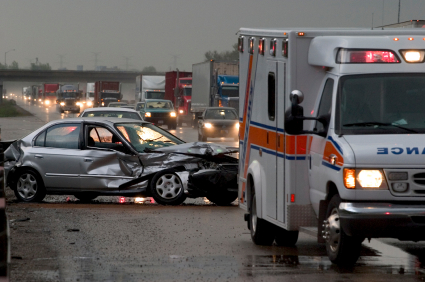
An accident can happen at any time and any place, often when you are least expecting it. In fact, it doesn’t even have to be your fault. Regardless of the – who, what, where and whose fault, the results can be tragic. Even minor fender benders can cause a driver and passengers to feel distraught, shaken up and downright scared.
The important thing is to know how to handle the situation, if it should occur. The reality is that every driver will experience one or more accidents during the course of their driving history. The best thing you can do is be as prepared as possible, by knowing what to do when it happens.
After the Crash – Dealing with an Accident
Some of what happens depends on the location and severity of the accident. For instance, when possible, you are actually supposed to move your vehicle out of the way of heavy traffic areas such as the interstate to avoid causing even more problems.
So while many people still believe you are supposed to not move your vehicle, you should if the location of the accident could lead to another accident or pile up. Of course, this may not be possible if the damage is extensive. Aside from that there are some other steps to take following a car accident such as:
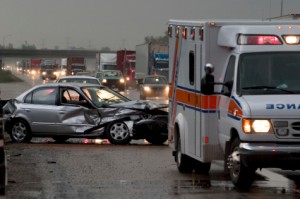
- Turn off your engine and call 911.
- Make sure everyone in your car and the other vehicle are alright.
- Watch for any potential hazards, such as leaking gas, which could cause you to need to move away from the car.
- If it is at night and fumes are not a concern, set out road flares to make the accident visible to other motorists.
- Contact your car insurance company.
- Take pictures if possible.
- If you must leave the scene of the crash, make sure you take your wallet, purse or other valuable items when possible.
- Do not accept responsibility for the accident – leave that to the professionals to determine.
- Most importantly, stay calm.
Things to Keep in Mind
Although the aftermath can be stressful and confusing, it is important for you to stay calm and be safe. It can be easy to make mistakes because of poor judgment during the chaos following a crash. This could even mean making comments or giving a statement to the police that sounds as though you are taking responsibility for the accident.
Staying calm will also help other people react the same way. Whether it is your own passengers or an irate driver from another car, it is important to try to keep the situation from escalating. Make sure you also don’t get so confused in the situation that you neglect to do important things such as take pictures and remember to call the insurance company.
How Important Is Your Insurance in All of This?
The problem with having car insurance you are not familiar with is that you may not be aware of what type of coverage you have. Most drivers play the “wait and see” game when it comes to their policy. That means they wait until they have an accident to see what kind of auto coverage they have.
The biggest problem with this is that you may find out the hard way that you do not have the coverage you thought you had. People often settle for keeping their old policy and never looking into getting better coverage or premiums. Don’t wait until you have an accident to find out what kind of coverage you have or, even worse, don’t have.
So if you haven’t really looked over your auto coverage recently, now is a good time to do so. It is also a good time to find out what exactly some of the differences in polices are, for instance:
- Liability – This is the minimum required by law and covers only the bodily injury and property damage to others if you are the at fault driver. If you have an accident with another car and have only liability, you will have to pay for your expenses out of your own pocket.
- No-fault or PIP – No-fault and Personal Injury Protection are similar and are required by some states. The advantage to this coverage is that any driver involved in a collision is covered by his or her own auto insurance policy. This helps make sure all parties involved have basic coverage and cuts down on the need for legal suits to settle claims.
- Collision – As the name implies, this coverage is for an accident involving another vehicle. Expenses for both parties are covered based on the maximum payout set, based on your premiums.
- Comprehensive – Comprehensive is important for taking care of what most other types of policies don’t. For instance, if you have a collision with a deer instead of another car, your collision insurance probably won’t cover it. Comprehensive insurance takes care of things others don’t, such as fire or damage from vandalism.
- GAP – GAP is important for anyone financing or leasing a vehicle that will severely decrease in value within a short time period after taking the car off the lot. If you have an accident and total your car, your standard coverage will pay the value of the car, not the amount you owe on it. GAP covers that difference.
So the type of coverage you have will determine what happens next after an accident. In some cases, your policy provider may tell you which shop to take your car to; others allow customers to take their car for repairs where they want. You may or may not be able to use a rental car, based on the coverage you have.
What is important before having an accident is knowing what type of car insurance coverage you have. This is also a good time to see how your current policy’s premiums compare to other providers. By using just your zip code, you can get immediate access to car insurance quotes. Make sure you have the coverage you want at the best prices possible by getting your rate quotes today.
Buying Auto Collision Insurance
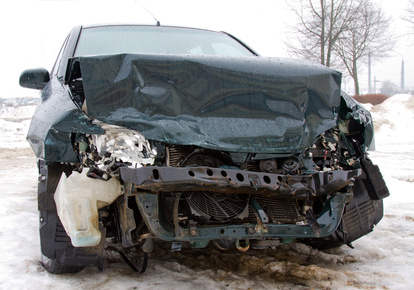
Buying auto collision insurance is easy to do when you know how to get all of the discounts that may apply to you. One of the best ways to make sure you are getting the best rates and the most discounts is to shop around with various insurers. To do this, you need to get free quotes from a variety of insurance companies. Remember, not all insurers offer the same products or charge the same rates, and you need to make sure that you are getting the insurance products you need at a price that is within your budget.
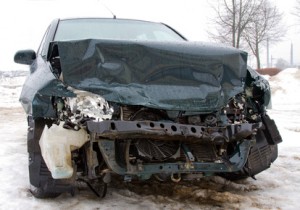
What is Auto Collision Insurance?
Basically, auto collision insurance is coverage that will pay for any damage to your car if you are in an accident and you are the driver who is at fault. If you are not at fault, your expenses will be paid by the other driver. If they do not have insurance coverage, you may have to sue the other driver to have all of your expenses taken care of.
Do You Need to Have Auto Collision Insurance?
It is not required by law that drivers carry auto collision insurance, but if you have a newer model vehicle it may be a good idea to have this coverage. If you are in any type of accident that is your fault, you need to have some way to pay for the harm that you may have caused. Your liability insurance is only going to pay for injuries or damages that you cause to others, such as property damage and medical expenses. Having collision coverage will pay for damages to your vehicle if you hit another vehicle, a building, signs, or anything else. Your auto collision insurance will also compensate you for the damage that you cause to the property of others.
Uninsured/Underinsured Motorists
Unfortunately there are far too many drivers on the roads who either aren’t carrying enough coverage or aren’t carrying any insurance at all. If you were to get into an accident with a driver who is uninsured or underinsured, your auto collision insurance will pay for your damages up to the specified limits, minus the deductible. The more elevated the deductible you choose the less your rates you will pay. If you are in an accident you may not like paying the deductible, but it will probably be a lot less than having to pay for repairs or replacement yourself. Of course, if the repairs would cost less than the deductible it is best to just pay for them out of your own pocket.
Do You Live in “Moose Alley”?
Many people in the US live in rural areas where there is a lot of wildlife, including deer and moose. In fact, some places are so populated with these animals that they are given the name “Moose Alley”. These are the areas where you need to be really careful when you are driving, especially at night and at certain times of the year. Late winter is when you will see a lot of moose and deer, because they are out foraging for food. Sometimes a run-in with one of these animals is unavoidable. In the US there are approximately 1.6 million vehicle accidents involving deer or moose and 150 deaths annually. If you live in a rural area where there is a lot of wildlife, you should consider having auto collision insurance. This way, if you do hit an animal you will be able to pay for any damages that it does to your vehicle.
Are Collision and Comprehensive Insurance the Same Thing?
There seems to be a lot of confusion about the difference between collision and comprehensive insurance. There is actually a big difference between the two types of insurance coverage. When you have collision insurance you have the coverage you need to pay for damages that are caused to your vehicle if you are in an accident with another vehicle, animal, etc. But, what if your vehicle is vandalized, stolen or damaged by an act of God? This is where comprehensive insurance comes in. Most policies combine collision and comprehensive into one package, along with the liability insurance that is required by the state you live in.
You Need to Get Quotes
If you want to get the best rates on auto collision insurance, shopping around and getting free quotes from a variety of insurers is one of the best things you can do. Give us your zip code and we will do all of the work for you. We can search our data bases in seconds to get you all kinds of free quotes from national insurers and insurers from your area.
All About Collision Damage Waiver Insurance
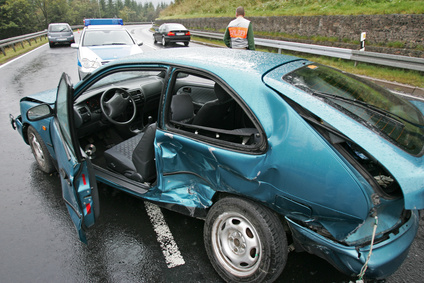
Haven’t heard of collision damage waiver insurance yet? It is one of the most important things to know about, yet you may no idea you may need it. When it comes to protecting yourself behind the wheel of a car it is important to have coverage no matter what – whether you are borrowing your boyfriend’s car for a quick run to the store or renting a car for a trip. Even renting a moving van comes with a risk and most drivers don’t think twice about getting behind the wheel and not realizing what a gamble they are taking on.
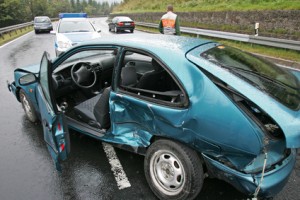
The trouble comes when even a minor fender bender takes place and you realize just how much it is going to cost you out of pocket. Plenty of times drivers think nothing will happen if they know the person they are borrowing a vehicle from and are only using it briefly. Or of you are renting a car you assume your own auto insurance or the credit card you use will have you covered.
Well, think again. There is a reason collision damage waiver insurance exists.
What CDW is & Other Details
The bottom line is that collision damage waiver insurance is a valuable thing to have when you rent a vehicle. Aside from what you think you have with your own auto insurance policy coverage or the policy that comes with your credit card, you probably aren’t as protected as you think. Even those who think their travel insurance will take care of them in a time of need may end up sorely mistaken.
Why CDW?
- What you don’t always realize is that the policy you pick up through a rental agency, travel insurance or other methods may have a ridiculously high deductible. So high in fact, you may as well be paying for the entire car out of your own pocket. Even if the rental is able to be repaired, the costs that it will take to cover the repairs will be far from reasonable.
- Aside from the rental car collision damage waiver, insurance may help protect you for the damage you cause another driver. Even worse, if you cause damage to a structure like a house or other building you may be financially liable for repairing it. Without proper coverage, you will be paying for this from your very own pocket.
- Even worse yet, if you were to cause personal injury to another driver or pedestrian without proper coverage the out of pocket expense would be your burden to take care of. This could include anything from helicopter or ambulance transport, prolonged hospital stays, surgery, expensive prescriptions and after care like follow up surgeries or physical therapy.
Make sure you are protected whenever you get behind the wheel, whether the car is yours or not. Believe it or not, getting quotes for insurance as important as this starts with nothing more than entering your zip code. From there you can get the affordable collision damage waiver insurance you need.
Is Collision Insurance Worth It?
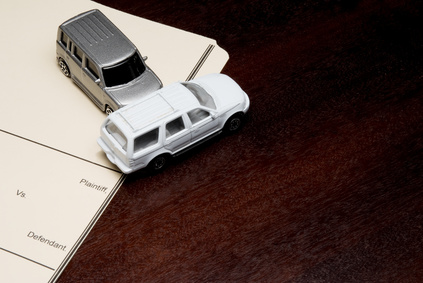
Buying car insurance is not exactly the easiest thing in the world to do. Many people think that all they have to do is call an insurance agency, say, “I want car insurance” and then they have exactly what they want. In reality, it couldn’t be any different. When you do this, you are at the mercy of the insurance company, and you could end up paying for insurance products that you don’t need. It may even be that you have no idea what your insurance covers, and you don’t understand all of the ins and outs of your policy. For instance, do you have collision coverage? If so, is your collision insurance worth it, or is it just something you are paying for and don’t really need?
When Should You Have Collision Insurance?
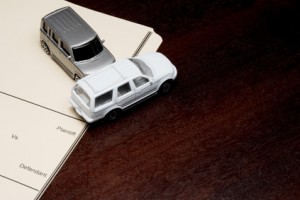
You may be wondering, “is collision insurance worth having?” In some cases, it is a really good idea to have this type of insurance coverage. For instance, if you have a newer model vehicle, it would probably cost quite a bit to replace it if you were to total it in an accident, and your collision insurance would cover the cost to replace the vehicle. If you are renting or leasing your vehicle, you will probably be required to have collision coverage by the leasing company for as long as you are renting or leasing. If you have financed your vehicle, your lender may also require you to have this type of insurance coverage.
If you have an older model vehicle, it is probably not worth it to bother with collision insurance. It might even be more expensive to have the coverage and pay the deductible than what your vehicle is worth. The only exception to this rule would be if you have an older model vehicle that you have restored or kept in immaculate condition. The vehicle may be considered a classic or antique, and you will want to have as much insurance coverage as possible, making collision insurance worth it. If you don’t drive the vehicle often, it may be that you don’t really need to have collision coverage. Again, it is up to you in the end.
Know What You Need and Shop Around for the Best Insurance Rates
When you have a vehicle that is newer or special it makes having collision insurance worth it. If you decide that you do want to have this type of coverage, the next thing you have to do is find the insurance company that is going to offer you the most coverage at the lowest price. This used to take a lot of driving around town or making phone calls, and took a lot of time.
Now, you can get multiple quotes in just a few minutes when you go online. We take your zip code and search our databases to get quotes from a number of insurers in your area. Then, you can take a look at what each has to offer, and if they make collision insurance worth it to have.
Automobile Collision Insurance Can Save You Money
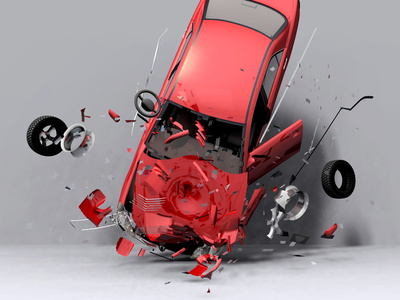
Do you have, or are you thinking about purchasing a new vehicle? If so, you have many things you need to take into consideration, including the cost of insurance and the type of coverage you are going to need. If your vehicle is a newer model, you may want to think about having automobile collision insurance. This way, if you are in an accident, your repair or replacement costs will be taken care of (minus the deductible) no matter who is at fault for the accident. Depending on the amount of damage done, having this type of coverage can really help, and it can save you a lot of money even after you consider the cost of the monthly payments.
Do You Need Automobile Collision Insurance?
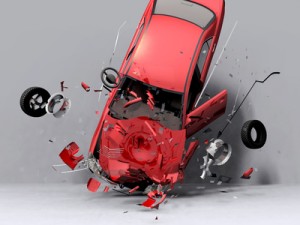
Not everyone needs to have this type of coverage. For instance, if you have an older model vehicle, it may not be worth it to pay for automobile collision insurance. On the other hand, if you have a newer model vehicle that would be expensive to repair or replace, it is more than worth it to carry this coverage. Sometimes you may even find yourself in situations where you have no option but to have automobile collision insurance. These situations include:
- Financing: If you have taken out a loan or alternate financing for your vehicle, your lender may require that you have automobile collision insurance for the duration of the loan period.
- Leasing: If you are leasing a vehicle, the leasing company will probably require you to carry this type of insurance coverage until the end of the lease period.
- Renting: If you are using a rental vehicle, you are required to carry insurance. If you do not have your own insurance, you can get it through the rental company.
If you are not renting, leasing or financing your vehicle, it is totally up to you whether or not you want to have automobile collision insurance. In the end, your final decision will probably come down to the cost, and the type of vehicle you own.
Lowering the Cost of Car Insurance
Even though it is a bill that we would rather not pay, we must have insurance, so we might as well try to find every way possible to get the best deals. You can do a lot of things to lower your insurance rates. Being a safe driver is a great way to start. If you have a clean driving record for a certain period of time, you may qualify for a safe driver discount from some insurance companies. Other ways you can save money include:
- Have a higher deductible. If you choose to raise your deductible, your monthly payments won’t be as high. The only drawback to this is that if you do happen to get into an accident, you will have to pay more before you can get any money for vehicle repairs.
- Take driver training classes. These classes teach people how to be defensive drivers, and how to completely understand all of the rules of the road so they can be good drivers. People who have taken these courses are often eligible for insurance discounts.
- Make fewer payments. Many insurers will offer discounts if you pay for six months or a year of coverage up front. If you do decide to cancel your policy later on, the policy will be pro-rated and you will receive a refund for the months that you do not use.
- Only pay for what you need. A lot of insurance agents will try to sell you products that you will never need. Make sure that you are only paying for the coverage you need, including automobile collision insurance if you have chosen to have it.
Who Has the Best Rates?
When you are shopping for automobile collision insurance, you need to shop around, and not buy the first policy from the first insurance company you find. All of the insurance companies out there are in competition with each other, so each one is going to try to entice you with a better deal than the last. When you get quotes from insurers, you can take a look at what they are all offering then decide which company is going to be best suited to your needs. We can get the quotes you need in just a couple of minutes. Just give us your zip code and we’ll search for quotes from insurers in your area.
Collision Damage Insurance Pays Your Expenses Following an Auto Accident
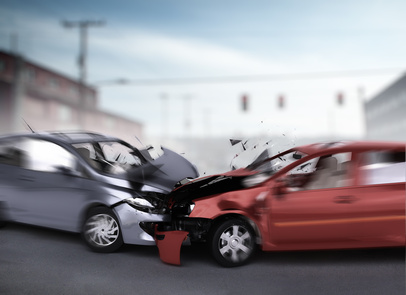
Have you ever been in a car accident? Hopefully you haven’t, but chances are you have probably been in at least one minor fender bender. Most of us have at one time or another. This is one of the reasons why collision damage insurance was created. This type of insurance coverage pays for damages over and above the money paid out by a typical liability-only policy, which won’t pay for any of your own damages. Many people don’t bother getting this type of coverage, because they think it is just too expensive. But, there are a number of excellent reasons to make sure that you do have collision damage insurance.
Do You Own a Newer-Model Vehicle?
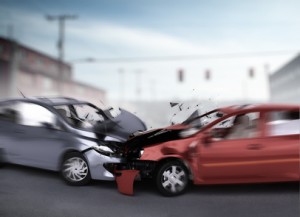
If you have recently purchased a newer vehicle, you are going to want to make sure that you have more than the bare minimum amount of insurance that is required by the state you live in. This insurance only covers damages for the other driver in an accident where you are at fault, and any of your own damages are going to have to be paid out of your own pockets. Most owners of newer vehicles spend the extra money to have full coverage policies, which include collision damage insurance. This way, if they are at fault in an accident, they are able to pay for their own expenses, including vehicle repairs, which can get rather expensive depending on the extent of the damage done.
On the other hand, if you own an older model vehicle, there probably isn’t any need to have collision damage insurance. It may be that the car just isn’t worth enough, and it would cost you more to have this coverage than what you would ever get out of it.
Is there a Difference between Collision Damage Insurance and Comprehensive Coverage?
When you want to have complete insurance coverage, the best bet is to have comprehensive insurance, which pays for everything not covered by collision damage insurance. Drivers can opt to have these two types of coverage bundled together in one package, or purchase them separately if they only want one or the other. Here is a breakdown of the two types of insurance and what they cover:
- Collision Damage Insurance – This covers expenses when you are in an accident, whether it is with another vehicle, an object, road issues, etc. You will be covered whether or not you are at fault in the accident. Some of the things that this type of coverage pays for include towing, storage, and salvage if your vehicle is a total write-off. If you need repairs following an accident, collision damage insurance will pay for them, unless the repairs are for a mechanical failure due to poor vehicle maintenance.
- Comprehensive Insurance – If your vehicle is stolen, comprehensive insurance will pay to replace it. Comprehensive coverage also pays for damages from fire, vandalism, severe weather, riots, and other things that can cause damage to vehicles. Acts of God are not usually covered, nor are acts of theft or vandalism by family members or employees. The contents of your vehicle are not protected (you can use your home owner’s insurance for this), nor is damage due to poor vehicle maintenance.
Leasing and Renting Vehicles
If you are renting or leasing your vehicle, you may be required to carry collision damage insurance while you are making payments. You may also be required to carry this type of coverage if you have financed your vehicle, so your lender knows that the vehicle will be paid for in the event that you have an accident before the end of the loan terms. If you do not want to have this coverage, your lender may impose a “forced place” collision policy and add the cost to your loan payments each month.
Protect Your Pocketbook
Unless you have been in a car accident, you have absolutely no idea of just how high your expenses could run. Not only do you have to pay the expenses of other parties involved if you are at fault, you will have your own expenses to take care of as well. Can you afford to buy a new car if yours is totalled in an accident? If you are like most of us, the answer to this question is a resounding “no”. If you have collision damage insurance, you won’t have to worry about paying for a new car if yours is wrecked, because it will be taken care of for you.
You may not need to replace your car, but just need some repairs. Your collision damage insurance will take care of the cost of the repairs, as long as they are not a result of poor vehicle maintenance. Since repairs are costly, this can take a lot of the burden of you, and you won’t feel financially strapped following an accident.
Your Deductible
One thing you need to consider when getting collision damage insurance is the deductible you are going to pay. There are two schools of thought on this. You could opt to have a low deductible and make higher monthly payments on the premiums, or you could have a high deductible and lower monthly payments. The choice is yours, and it is something you should discuss with your insurance agent.
Getting the Best Deals Takes Time
You can’t just get a great deal on insurance by making one call. You need to get quotes from many different insurance companies. This is because they don’t all offer the same things, and while one may offer you one price, another may offer a better deal, and the next one may offer an even better deal. They are all in competition, and they want your business. This is why it pays to shop around for collision damage insurance.
We can make the job easier by getting quotes for you. All you have to do is give us your zip code, and we’ll provide you with quotes from a variety of insurers in your area so you can be sure you’re getting the best deal around.
All You Need to Know About Collision Insurance
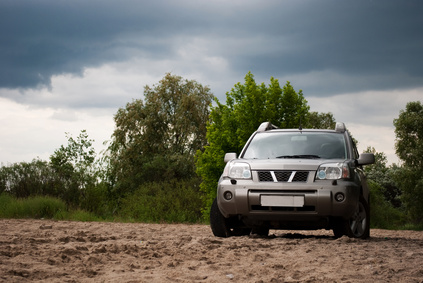
Collision insurance is possibly one of the most misunderstood types of policies drivers get confused about. Of course, there are many aspects of car insurance policies that can get confusing, collision insurance seems to leave people unsure of what they are actually getting. The problem is, without a clear understanding you could end up thinking you have more coverage than you actually do.
Here’s the basic run down on what collision insurance is:
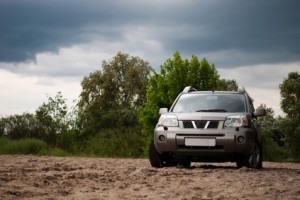
- Collision car insurance is meant to cover your vehicle’s repairs in the event you are in an accident involving another vehicle.
That may sound simple yet too many drivers find out once they have a wreck that their collision auto coverage doesn’t cover as much as they had thought or hoped. Where the confusion comes in is what type of collision is included. In most cases, collision coverage does not include:
- an accident involving an animal
- an accident in which you, the driver, strikes a structure like a home
- a wreck in which you, the driver, make contact with any type of personal or public property like a fence, mailbox, guard rail, business sign or street light for example
- In other words, this insurance doesn’t cover a collision with anything other than another car.
To have coverage for most of these types of collisions you generally need to have extra coverage. In most cases, comprehensive car insurance is what drivers use to make sure these other types of collisions are covered. It is also important to make sure your collision auto policy covers medical bills you could incur unless you have your own private health insurance that would help with medical expenses.
So Who Needs it?
In most cases, drivers who have a car of value that is paid off may get collision as opposed to just liability in order to have the cost of their car covered. In the event of an accident in which you are at fault your repair or replacement bills would be fully or partially covered, depending on the amount of coverage you have.
If you have a financed car you will have to carry collision insurance coverage, usually in addition to things like comprehensive and possibly even gap insurance. The reason for this is that the lender will want to make sure you have the car insured well enough so that if you total it the car will be covered. The good news is that there are no states in which collision auto insurance coverage is required. Although almost every state requires drivers to carry some level of car insurance, this usually ranges between liability and no-fault car insurance.
If you think you want or need collision auto insurance coverage it is time to get an idea of what kind of rates you could be looking at. By using just your zip code you can get this kind of information right away. Find out now just how affordable collision insurance could be for you.
What Does Collision Insurance Cover?
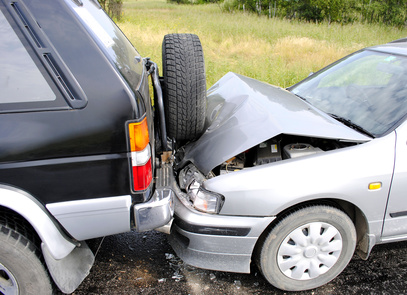
When considering different insurance policies you may be wondering what does collision insurance cover? Car insurance coverage can get confusing as well as be a bit tricky to figure out. However, if you have the right resource for information you can get all the answers you need. Of course this would include helping you understand if you need collision and what exactly it covers.
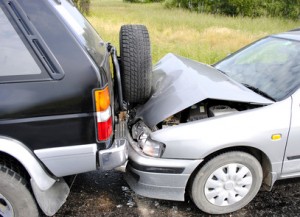
The important thing to know up front is that different insurance policy providers may cover different things when it comes to collision car insurance. The basics of collision insurance coverage include:
- Coverage of damage to your car if you are the at-fault driver in a collision involving another car.
However, from there, it can vary quite a bit. For one thing, you may want to make sure your policy covers medical expenses as well as repair or replacement of your car. If not you may want to consider having coverage with a company that does cover your medical expenses if you are in an accident and at fault, unless you have health insurance. The thing is for medical expenses you could be looking at paying things out of pocket like:
- the ambulance or other modes of transport used to get you to a hospital
- your stay in the hospital for however long that may be
- any surgery that is required immediately or following your arrival to a hospital
- any medications required short or long term following your hospital visit
- any follow up care required like physical therapy
Other Variances
The big debate about collision car insurance coverage often comes down to what exactly a policy provider will cover as a “collision.” Although many drivers assume their collision policy covers their accident involving any type of collision, they are often sadly mistaken and do not find out until they need to file a claim. You can learn more about what it covers here.
Some companies do cover any type of collision while others only cover a collision that involves another vehicle specifically. If the policy you have or get only covers a collision that involves another vehicle you will probably want or need to add comprehensive insurance. Where comprehensive makes up for collision usually is:
- an accident involving an animal that causes damage
- an accident in which you hit a structure like a house
- a collision in which you come in contact with other types of personal or public property like a fence or lamp post
In addition to these types of collisions, comprehensive car insurance also often covers details other policies do not. This includes things like:
- Acts of God
- Storms and storm related damage like hail
- Natural disasters
- damage from riots
- damage from fire
- Theft or damage from vandalism
There are often other details included, but these are some of the basics that comprehensive usually covers where collision car insurance or other policies do not.
Is Collision Insurance Enough for Me?
Now that you have a better understanding of what collision auto insurance does and does not cover you should have a better idea of whether or not it is right for you. Some of this also depends on your vehicle situation. Keep in mind no state requires you to carry collision insurance to drive legally. However, you may need this if you have financed a car.
Usually though, in addition to collision coverage, you would also need comprehensive and even gap insurance if the car is financed. What’s the difference between collision and gap insurance, you may be wondering?
- Gap insurance covers what your policy may not when it comes to value versus loan amount. In other words, when you get a new car financed you usually owe more than the car is worth. If the car should be totaled in an accident collision and comprehensive may step in to pay on the claim, but only for the true value of the car. This could leave you with hundreds or even thousands of dollars difference to cover on your own. Gap insurance pays this difference.
Sure, it can seem like a great deal to think about when it comes to all the different types of policies you may want or need for your car. The bottom line though is that it actually all fits together like pieces of a puzzle making sure no aspect of your coverage is left out of the policy.
If you are ready to get quotes for your collision car insurance or other types of coverage, get started right now with nothing more than your zip code.
Do I Need Collision Insurance & Other FAQs

The world of car insurance can be confusing. So confusing and frustrating in fact that drivers often settle for a policy they don’t even want and rates they can’t afford just to have their policy in place. The good news is that there is so much information out there now and so many ways to get lower rates you shouldn’t have to settle any more paying rates that are higher than you want for coverage that is less than you want.
Even just understanding the different types of policies and determining which one you need, can be overwhelming. For this reason, it is important to help drivers understand a little bit about collision and other types of car insurance options you have available. Since one of the main questions we hear is “Do I need collision insurance?” we decided to start with this one.

- Do I need collision insurance? The important thing to find out when you get insurance is which type of policy you should have. From there you can always get more insurance if you want it. The important part is making sure you first meet the requirements of your state and auto lender if the car is financed. Collision is not required by state minimum requirements, but more than likely it will be by your lender. If you are not required to have collision insurance than the choice is up to you, so then it is just a good idea to understand what it is to decide if you want it.
- What does collision car insurance cover? If you already determined in “do I need collision insurance?” that you do not need this you still may want to consider it. Even if you are required to have it you should still get an idea of what it covers. Some of the details will vary from insurance provider to insurance provider so this is just the basics. Collision auto insurance coverage is what helps covers your expenses if you are involved in a collision, usually whether you are at fault or not. If you are not at fault the other insurance may cover this but either way you should make sure you are covered. This can help a great deal with car repair or replacement expenses, as well as any medical bills you may end up with. However, there are some details that vary from company to company.
- What does or doesn’t collision car insurance include? In most cases collision insurance only covers an accident in which another vehicle is involved. For anything more extensive you may have to get comprehensive to help cover the difference. For example, if you want coverage in case of hitting a large animal, a structure like a home or other types of personal or public property you would probably still need comprehensive on top of collision coverage. There are however a handful of auto insurance policy providers who include all types of collisions within the collision insurance coverage.
- Is collision coverage enough for my financed car? More than likely collision insurance is not enough coverage for your financed car. In most cases, you will need collision in addition to comprehensive as well as probably gap insurance coverage. Gap insurance stands for Guaranteed Auto Protection, but could also be described as the policy that helps fill in the gaps on your standard auto insurance policy coverage. If the car you are paying on is worth less than the amount you are paying you will need gap in addition to collision insurance. Gap is what pays that difference if your car is totaled out between what you owe and what the car is actually worth.
- My car is paid for, so do I need collision insurance? This is up to you and much of it depends on the value of your car and whether or not you have health insurance. If your car is paid off but still in good shape and of some value then having it covered by collision is a good idea. Also, if you do not have health insurance and would be unable to pay your medical bills in the event of an accident in which you are hospitalized then collision could be very beneficial for you.
- Is comprehensive better than collision insurance? Both policies are different and cover different things. Most drivers do not add comprehensive to their policy if it is not required by their lender. However, this can be a very costly mistake. Assuming your collision insurance policy will take care of things like a collision involving a building can be a rude awakening. Also, comprehensive is what often covers drivers with things like storm damage, theft, vandalism or even “Acts of God.” All of these can be costly issues to deal with out of your own pocket if you do not have auto insurance coverage for them.
Hopefully, you have a better idea from “Do I need collision insurance?” as well as other things. While it still can be a bit confusing to find out what type of car insurance coverage you should have it can be figured out. It is often a good idea to lean towards having too much insurance than not enough.
When you get quotes for different types of car insurance coverages, you may find lower rates then what you have now. This would mean you could have better and more extensive coverage while still paying less for your premiums. Make sure you meet the minimum requirements if your car is financed though, because if not your lender will tack the extra coverage on and leave you with a high bill to pay at the end of your loan.
The best way to find out if you can afford collision insurance? By using just your zip code you can get an idea of what this would cost you. Get started finding out about collision insurance rates today.
Collision Auto Insurance – Is It Right for You?

Making the choice on whether or not to have collision auto insurance may not seem like a big decision until you really consider what it could mean. The best thing you can do is first gain an understanding of what collision car insurance is, and then see how it applies to your current or future situation. When in doubt, it is better to have more coverage than you need versus not having enough.
What Comes with Collision Auto Insurance?
The first thing to do is make sure you have a clear understanding of what collision car insurance is and what it is not. The trick, though, is that this can vary to some degree based on who your current auto insurance provider is. In fact, now is a good time to contact your current car insurance policy provider to find out exactly what is inside your own policy now.
So think about these things:

- The bottom line is that collision insurance is intended for what the term implies. If you have a collision, your car insurance should kick in. Of course, there are other considerations such as how much your maximum amount of coverage is and whether or not that fully covers your own vehicle and medical expenses.
- In some cases collision insurance policies only cover cars in a collision with another car. To get coverage aside from this, you would need to alter your policy or even add on to your current policy. The trick is to never assume you have coverage for collisions other than coverage with another vehicle without first checking.
- Some policies do cover other types of collisions, or you may have to add extra coverage to get insurance for incidents such as striking a building or other structure, an inanimate object or an animal or even if your car collides with something like a ladder from a utility truck. Again it is an unwise decision to assume all of these things are covered in your current collision policy. Before signing up for a new policy, make sure you get all the coverage you want and need.
Is Collision Car Insurance a Good Idea?
Whether or not you need collision insurance for your car depends on the car you drive. If, for example, you have a financed car, collision will probably even be mandatory. The finance company that is providing the loan will want all the coverage possible to ensure their loan amount is paid in the even the car has to be totaled out.
If, however, you are driving a car that is paid off, you may not want to opt for additional coverage. This is especially true if the car is what is commonly referred to as a ‘beater,’ which means the car is just a basic mode of transportation, not in very good shape and not of much value. The bottom line is if your car should be totaled out and you needed a new car, would it make sense for the value of your car to have it insured or not?
Other Things to Keep in Mind
When deciding to have collision auto insurance or not, there are still some other things to keep in mind. For example:
- Collision car insurance is not required by law, which means the option is yours on whether or not to have it, unless of course, your car is financed. So basically, you do not have to obtain collision insurance to drive legally, but will need to have it to satisfy the requirements of the bank which holds your car title.
- You can save money with collision by altering your deductible. The deductible is the amount you pay out of pocket in the event of filing a claim. Before your insurance provider will pay towards a claim, you must first pay the deductible on your own. The higher the deductible the lower the premiums, but be sure not to get into more deductible than you can manage in the event of an accident.
- Pay your bills less often than monthly and you can save even more money. For example if you can afford to pay on an annual or at least quarterly basis, the amount you can save on your premiums may surprise you. Also if you can set up to go ‘paperless’ for your statements and bill paying, you will cut your rates even more.
Of course one surefire method to save on your premiums is as simple as entering your zip code to get your quotes for rates. Find out how much you could be saving on your collision auto insurance now.











